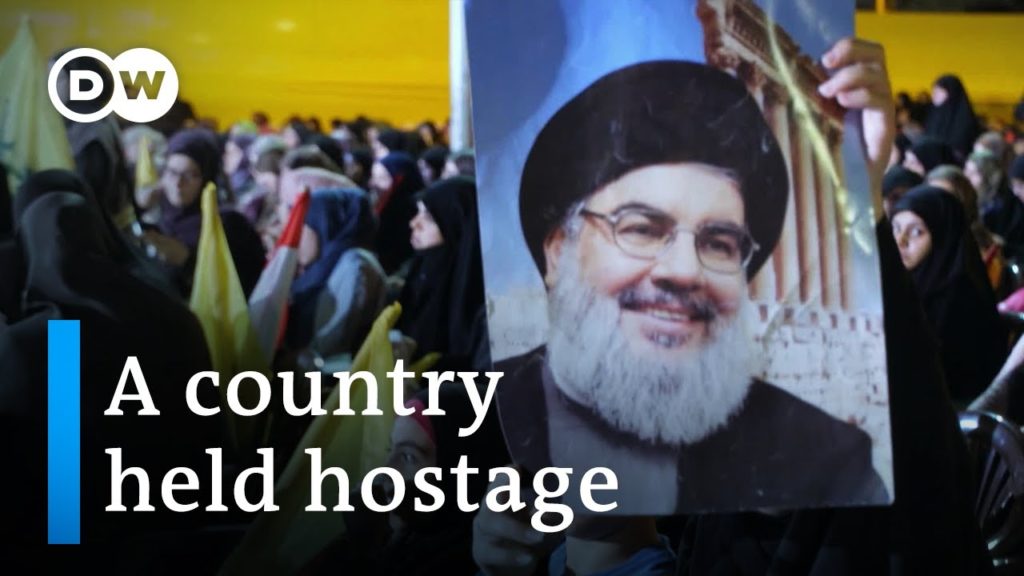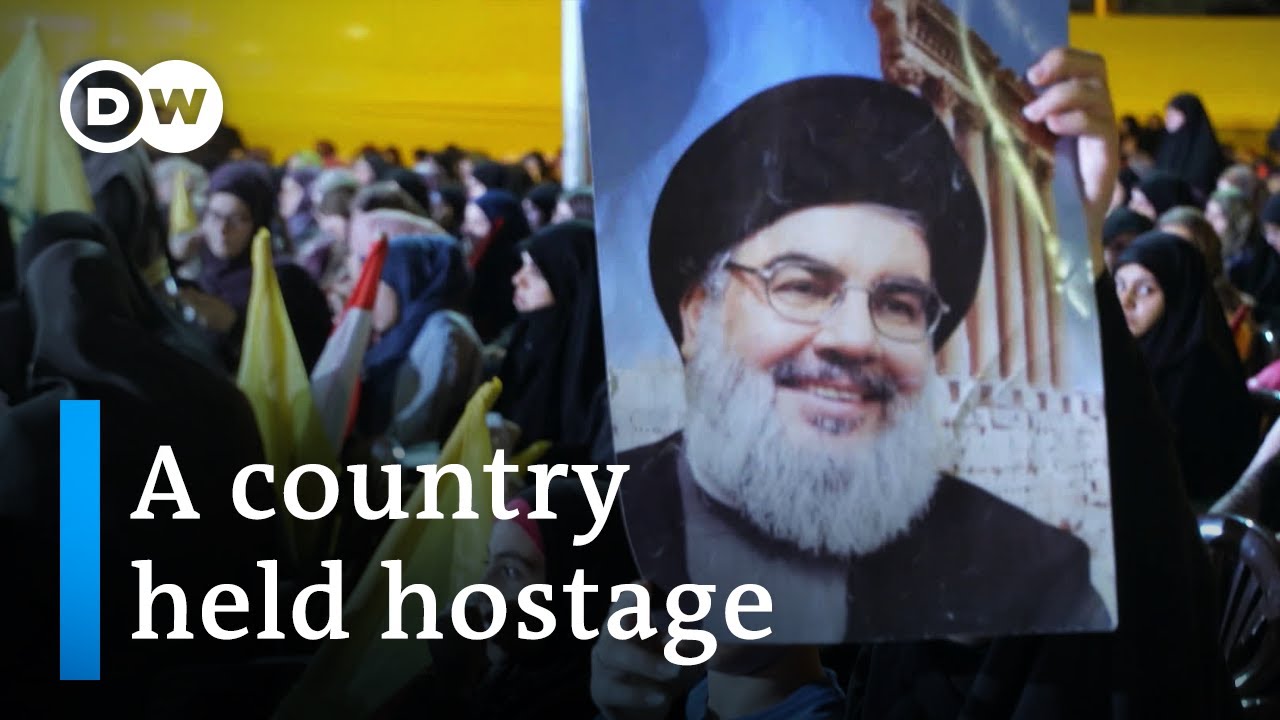BEIRUT—With yet another failed attempt to form a government and no replacement in sight, Lebanon’s future is looking a lot like its bleak past.
The prime minister-designate, Mustapha Adib, resigned in late September after nearly a month of fruitless talks to create a Cabinet of technocrats. French President Emmanuel Macron had publicly backed that process, which came on the heels of Prime Minister Hassan Diab’s resignation following the Aug. 5 port explosion that devastated parts of Beirut. Nonetheless, Lebanon’s politicians are still mired in a dispute over control of the powerful Finance Ministry, as the economy collapses and the social fabric frays. If even the destruction of its capital city does not lead to palpable change, can the country be saved?

The political impasse comes at a defining moment in Lebanon’s history. As Macron has made clear, there will be no further international assistance unless the political elites put aside their differences—and forming a government was supposed to be the easy part. It is clear from the breakdown in talks that the Lebanese state has been captured by Hezbollah, the powerful Shiite militia and political party backed by Iran. Along with the other main Shiite party, the Amal Movement, Hezbollah has insisted on designating a Shiite as the finance minister, a portfolio that has recently been controlled by the Shiite bloc under Lebanon’s sectarian political system.
In early September, Macron tried to throw the country a lifeline by giving Lebanon’s leadership an ambitious 15-day timeline to form a government whose priority would be to resume bailout talks with the International Monetary Fund and implement a roadmap for reform. As one of the world’s most indebted nations, Lebanon’s economic outlook is grim; without a change of course, it is headed for a Venezuela-style collapse. The middle class has been hit hard by dwindling salaries and job prospects, as well as skyrocketing inflation and capital controls that restrict people’s access to their own bank deposits. A financial rescue plan hinges on the government unlocking some $10 billion in aid from the IMF and $11 billion in favorable loans pledged by international donors at the French-backed CEDRE conference in 2018. None of those funds will materialize, however, unless the government enacts reforms and accountability measures.

Here in crisis-stricken Beirut, echoes of Lebanon’s past are keenly felt, whether in simmering sectarian tensions or in a political class that is dominated year after year by the same forces. The militias that fought in the country’s 15-year civil war have only renamed themselves as political parties; they continue to rule and ruin the country. This for-profit elite operates under a system that abuses every resource available, even the most basic. Scheduled electricity blackouts have given rise to a gang of private, unregulated power suppliers that charge exorbitant prices, popularly known as the “generator mafia.” The only reliably clean water is bottled and sold at a premium. Rubbish piles up in streets, posing a public health risk, as waste removal companies get fat on overpriced contracts. The list goes on.
The cherry on top of this already devastating economic crisis was the August blast, which will require a cash injection of up to $15 billion to rebuild the city. The explosion reawakened popular anger against a kleptocratic elite that allowed 2,750 tons of highly explosive ammonium nitrate to sit unattended at the port for years.
It was only a year ago that a new tax on WhatsApp triggered massive anti-government demonstrations that forced the resignation of Prime Minister Saad Hariri. Protesters demanded an overhaul of the entire political establishment—all sects, all parties—that had plundered the country’s resources while concentrating power among its cronies and failing to provide even the most basic government services.
At the center of it all is Hezbollah, which was implicated in a slew of scandals in the months leading up to last fall’s protests, including fraud and embezzlement, smuggling of contraband and drug trafficking. In a rare show of defiance of the most powerful political force in the country, the “October revolutionaries” called out Hezbollah when they protested against the corruption and incompetence of Lebanon’s political elite.
Lebanon’s overseas partners, too, see the heavily armed group as a threat, although they differ on how to counter it. In remarks to reporters after Adib’s resignation, Macron laid the blame for the failed government formation process squarely at Hezbollah’s feet, asking if it was “really a political party,” or if it simply worked “in a logic dictated by Iran and its terrorist forces.” But France has resisted calls to designate Hezbollah as a terrorist group, as the United States has done.
With a well-armed militia and financial backing from Tehran, Hezbollah has operated with impunity for decades, almost like a satellite state. It controls its own media outlets, which portray it as beyond reproach and depict Lebanon’s woes as the result of U.S. sanctions. When last year’s protests erupted, Hezbollah launched a disinformation campaign portraying the demonstrators as being manipulated and exploited by foreign powers like the U.S., when in reality they were being attacked and beaten by Hezbollah’s henchmen.
In the aftermath of the August explosion, the Trump administration has ratcheted up pressure on Hezbollah, imposing new sanctions on its affiliates and enablers. In response, the group is racing to fully ensconce its assets within the legitimate operations of the Lebanese state. This is why it is so insistent on having the Shiite bloc maintain a tight grip on the Ministry of Finance—it will ensure that Hezbollah oversees allocation of government revenues and the financial resources that flow into the country. Hezbollah uses its other main fiefdom, the Ministry of Health, to divert health care and patronage jobs to its supporters and fighters, helping it endure sanctions and continue to offer social services to its base.
Without a strategy to disarm Hezbollah and relax its control over key government functions, political reform in Lebanon will remain an abstraction. Hezbollah has unique responsibility in what comes next, because it stands in the way of real transformation. What Lebanon needs, first, is to be exposed for what it is: a hostage of Hezbollah. There is a strong case for conditioning further pledges of financial aid on disarming the group, because otherwise, Lebanon cannot be reformed.
The French initiative was the last opportunity to avert Lebanon’s immediate collapse. Today, there is neither the will nor the power internally to find a cure for Lebanon’s ills—or even to keep it on life support. More of the same political bickering will lead to more middle-class flight and hollowing out of the state, cementing Hezbollah’s power and making it even more difficult to counter. In this process, ordinary Lebanese will be the first to suffer, and elites will be the last. Unless a paradigm shift is introduced into the current scene of decay, the prospects for Lebanon are disastrous.
Patricia Karam is the regional director for the Middle East and North Africa at the International Republican Institute.
WORLD PRESS REVIEW


Leave a Reply
You must be logged in to post a comment.